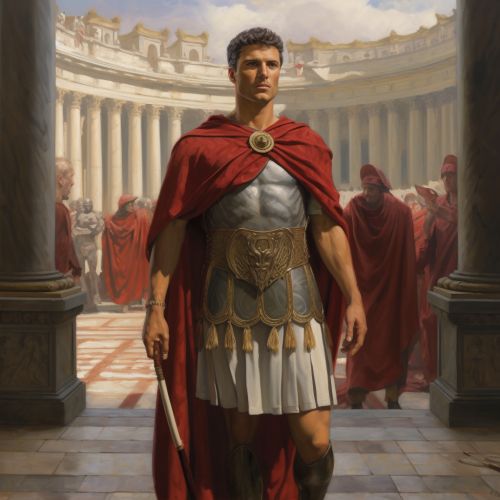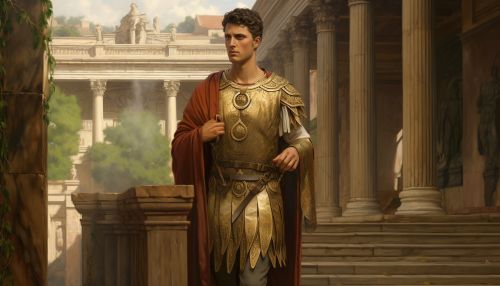Julius Caesar
Early Life
Gaius Julius Caesar was born on July 12 or 13, 100 BC, to Aurelia Cotta and Gaius Julius Caesar, a praetor. His family was part of Rome's aristocratic republican political system, which was marked by a complex hierarchy of official positions and social ranks. Caesar's father died suddenly when he was just 16, leaving him as the head of the household.


Political Career
Caesar began his political career in the lower Roman courts. He quickly rose through the ranks, serving as military tribune, quaestor, and senator. His political ascent was marked by a combination of military prowess, popular appeal, and strategic alliances, including his famous partnership with Pompey and Crassus, known as the First Triumvirate.
Military Achievements
Caesar's military achievements are some of the most well-known and significant in history. His conquest of Gaul extended the Roman world all the way to the Atlantic Ocean, with the first Roman invasion of Britain in 55 BC. His most famous military achievement, however, was his victory in the Civil War against Pompey, which resulted in him becoming the dictator of Rome.
Dictatorship and Assassination
Caesar's dictatorship marked a turning point in Roman history. He implemented a series of reforms, including the creation of the Julian calendar. However, his increasing power and declared dictatorship resulted in his assassination on the Ides of March (March 15) in 44 BC, an event that led to the end of the Roman Republic and the rise of the Roman Empire.
Legacy
Julius Caesar's legacy is vast and enduring. His life and death have been the subject of countless works of literature and art, including Shakespeare's famous play, "Julius Caesar." His military strategies are still studied in military academies today, and his influence on the Roman Empire is immeasurable.
